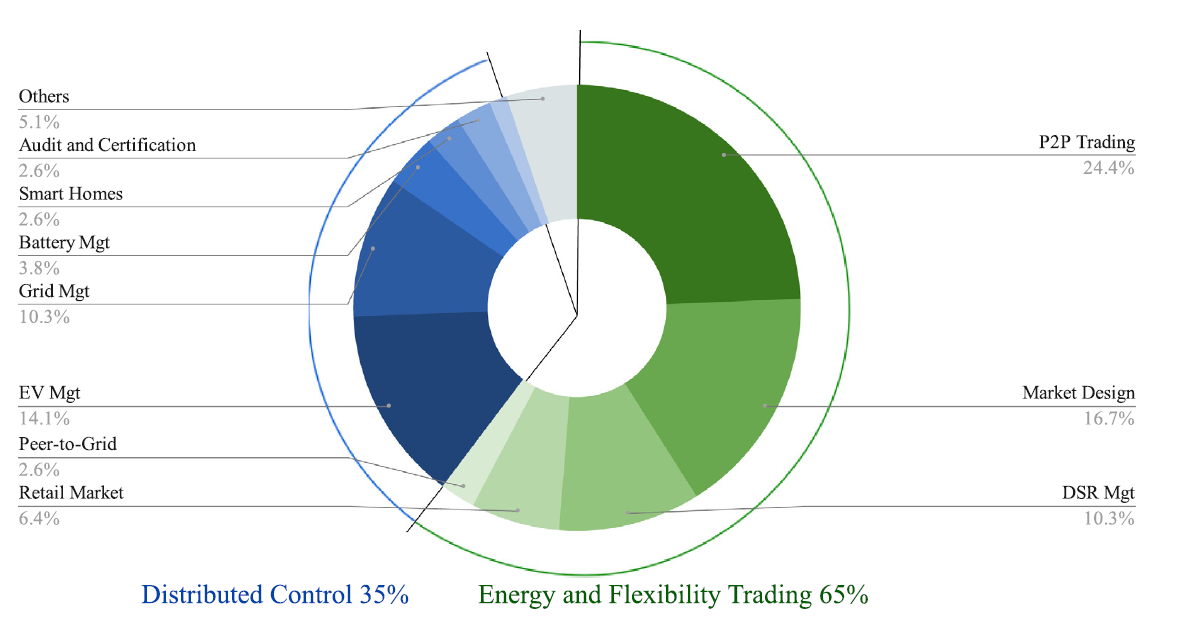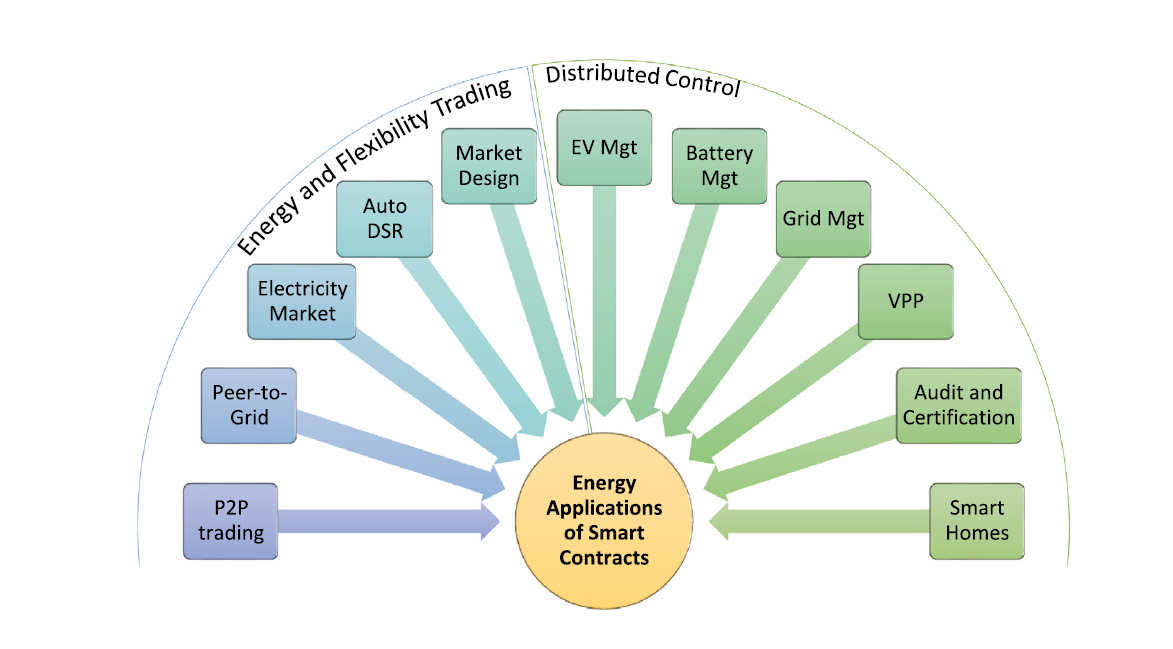In an ever-changing world, technology is becoming a catalyst for innovation in all sectors. One of the fields that is undergoing a revolutionary transformation is the energy sector. The application of so-called “smart contracts” is emerging as a powerful and versatile solution to address challenges and seize opportunities in this sector.
The article “Smart contracts in energy systems” is a research masterpiece that thoroughly explores the potential of smart contracts in the field of energy. With a comprehensive analysis of 178 publications and 13 innovation projects, it provides a panoramic view of the possibilities this technology brings to stakeholders in both established and emerging markets, including energy peer-to-peer platforms.

Breakdown of Smart Contracts in the Energy Sector
Smart contracts mainly fall into two areas in the energy sector: flexible energy trading and distributed control. These applications are transforming energy management and distribution.
Flexible Energy Trading
One of the most exciting applications of smart contracts is their ability to facilitate flexible energy trading. Imagine a world where electric vehicle (EV) owners can optimally charge their vehicles, ensuring a fair distribution of benefits among EV charging station owners. This can be achieved thanks to optimization algorithms implemented in smart contracts, and is especially relevant for GREEN, an initiative that seeks to boost electric and sustainable mobility.
In addition, smart contracts also enable smart EV charging. These smart contracts can regulate energy prices between charging stations and EVs, ensuring efficient and economical charging. This application is particularly popular, as evidenced by the 14% agreement reached in the systematic review mentioned in the paper “Energy trading of electric vehicles using blockchain and smart contracts“. GREEN could greatly benefit from this technology to optimize its charging infrastructure.
Distributed Control
Another exciting area is distributed energy control. Some projects, such as “Design and implementation of a blockchain-based energy trading platform for electric vehicles in smart campus parking lots“, have implemented energy trading platforms between electric vehicles in smart parking lots. This could be analogous to the load balancing mentioned above, allowing EVs to efficiently share energy in GREEN parking lots.
In addition, smart contract technology has also been used in autonomous vehicles for smart load management. For example, “Blockchain combined with smart contract to keep safety energy trading for autonomous vehicles” describes how autonomous vehicles can use smart contracts to communicate their charging needs to other EVs with charging capabilities, such as GREEN’s charging stations. This ensures efficient resource allocation and optimal charging.
The article concludes with a critical reflection on the advantages and challenges of smart contracts and blockchain technology in the energy sector. In addition, it offers a number of recommendations that should be considered when applying smart contracts in power system configuration.

